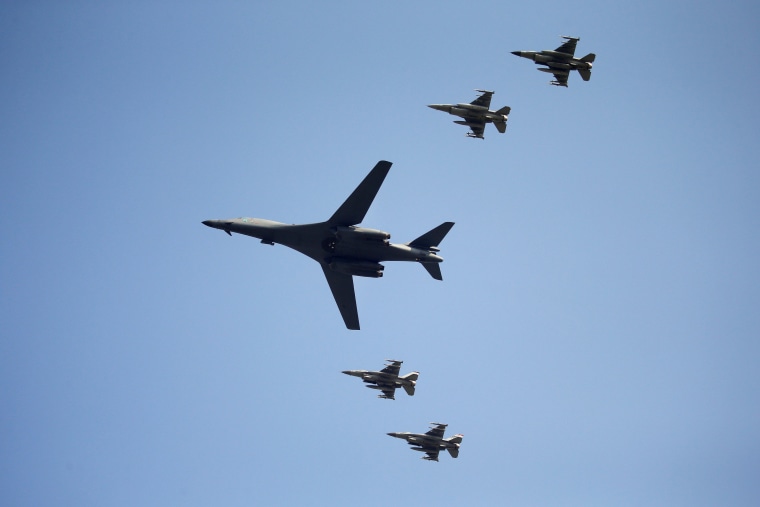It's difficult to choose the single most alarming thing Donald Trump said about foreign policy and national security at this week's presidential debate, in part because there are
so many unsettling comments to choose from.The Republican seemed to believe ISIS has been around for much of Hillary Clinton's adult life, which isn't even close to being true. Trump suggested China should invade North Korea. He took credit for NATO policies that he had nothing to do with, while suggesting the NATO alliance itself should be considered as some kind of protection racket.Trump also insisted, as he has before, that the United States should have stolen Iraq's oil -- which would have been illegal -- in order to deny ISIS the resources it's actually getting from Syria.But as Rachel noted on the show the other day, the real gem has to be Trump's woeful understanding of nuclear policy. Moderator Lester Holt asked an excellent question: "On nuclear weapons, President Obama reportedly considered changing the nation's longstanding policy on first use. Do you support the current policy?"Trump rambled a bit before
eventually saying:
"I would like everybody to end it, just get rid of it. But I would certainly not do first strike."I think that once the nuclear alternative happens, it's over. At the same time, we have to be prepared. I can't take anything off the table."
He then rambled some more, straying between a variety of loosely related topics, including his opposition to the international nuclear agreement with Iran.But for those paying attention, the real problem was with Trump's obvious contradiction. Policymakers can adopt a "no-first-use" policy or they can endorse a "nothing-is-off-the-table" position, but Donald Trump is one of those rare politicians who wants to take both sides simultaneously.This followed a GOP primary debate in December at which Trump appeared to have no idea what the nuclear triad referred to. The Republican could have taken advantage of that opportunity, recognizing the importance of getting up to speed on the nuclear basics, but instead Trump seems to have done no homework on the issue at all.That remained true
in the intervening months.
In May, Trump even suggested he could support South Korea, Japan and Saudi Arabia, who are not currently nuclear powers, arming themselves with nuclear weapons for their own defense.CNN's Anderson Cooper asked the Republican presidential nominee, "So if you said, Japan, yes, it's fine, you get nuclear weapons, South Korea, you as well, and Saudi Arabia says we want them, too?"Trump agreed."Can I be honest with you? It's going to happen, anyway. It's going to happen anyway. It's only a question of time," Trump insisted, despite a 25-year trend in which numerous nations -- Libya, South Africa, Iraq, and former Soviet republics -- have been denuclearized.
The
New York Times' David Sanger
added this week that, during the debate, Trump "appeared somewhere between contradictory and confused" on the nuclear issue.Given the importance of the issue, that's not at all reassuring.
